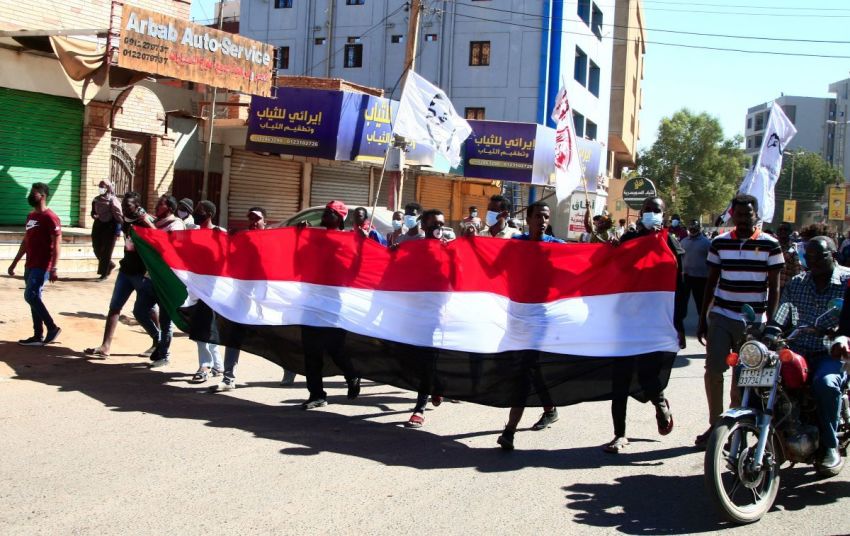Sudanese forces kill 4 civilians during protests against military coup, doctor group says

Four protesters were reportedly killed Thursday by security forces in Sudan as thousands nationwide took to the streets in opposition to an October military coup that overturned a civilian-led transitional government that ousted longtime dictator Omar al-Bashir in 2019.
According to the Central Committee of Sudanese Doctors, four civilians were killed in Omdurman “by the live ammunition of security forces” while participating in anti-coup protests. Thursday marked another round of civilian demonstrations since the Oct. 25, 2019, coup that led to the initial removal of Prime Minister Abdallah Hamdok and the arrest of key officials.
Hamdok was reinstated as part of an agreement with Sudan’s top general Abdel Fattah al-Burhan in November. The deal calls for Hamdok to lead an independent technocratic cabinet until elections are held. However, the military would maintain oversight of the cabinet.
According to Carnegie Endowment for International Peace, the agreement was not made between military and civilian actors but between al-Burhan and Hamdok. In opposition to the deal, the pro-democracy movement wants a fully civilian government to oversee the transition.
The agreement did not give the civilian coalition that shared power with the military, Forces for Freedom and Change, a role in the transitional government.
The U.S. Embassy of Khartoum condemned Thursday’s killings.
“The U.S. Embassy condemns the killing of at least four protesters and injury of dozens during demonstrations today,” a statement posted to Twitter reads. “We also deplore the violent attacks by Sudan’s security services on media outlets and journalists, and urge authorities to protect the freedom of the press.”
The Central Committee of Sudanese Doctors reports that the death toll among civilians has risen to 52 since the Oct. 25 coup, including “10 civilians who were killed after the deal agreed between the Junta & the prime minister.” Hundreds have been injured by security responses to the demonstrations.
According to The Associated Press, the medical committee is affiliated with the Sudanese Professionals Association, an umbrella group of Sudanese trade unions that took a prominent role in the protests leading to Bashir’s ouster in 2019.
The association accused state-backed militias of intercepting ambulances so they could not reach those who were wounded. The protests Thursday were preceded by an internet blackout.
Protesters demonstrated in the capital, Khartoum, as well as neighboring cities like Omdurman and Bahri, as they tried to march toward the presidential palace. A witness told Reuters that security forces confronted protesters about a mile away from the palace and used tear gas and stun grenades. Bridges leading into the capital were also blocked. At least three of the protesters killed Thursday were in Omdurman.
Witnesses also reported protests in Kassala and Port Sudan, cities in the east, AFP reports.
For many years, Sudan was labeled one of the worst countries globally when it comes to human rights and religious freedom violations.
Sudan was often listed as a country of concern for religious freedom by the U.S. State Department until 2019, when it was removed from the list amid promising signs under the transitional government.
Before Bashir’s ousting, Sudan was ranked as the sixth-worst country in the world for Christian persecution by the watchdog group Open Doors USA, which said Bashir ruled the country as “an Islamic state with limited rights for religious minorities.”
Following the October coup, the U.S. Commission on International Religious Freedom voiced concern that the Sudanese military take over could “very well threaten all the gains made by the ousted civilian-led transitional government.”
“The coup leader General Burhan and his deputy General Mohamed Hamdan Daglo, also known as Hemity, were both key figures in the former regime of Omer al-Bashir, which committed grave human rights violations, including of religious freedom,” USCIRF warned in a November policy update.



























